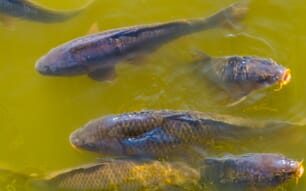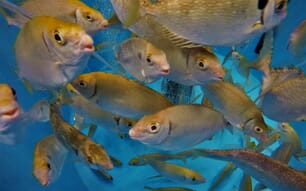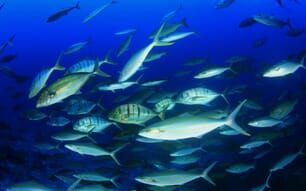Lost and abandoned fishing gear, also known as ’ghost gear’, poses a significant threat to the health and productivity of our oceans. Each year sees the appearance of new ghost gear due to factors such as extreme weather events, accidental loss or deliberate disposal at sea.
Mostly made of plastic with a life expectancy of up to 600 years, ghost gear accumulates in our oceans at an estimated rate of 640,000 tonnes per year or one tonne of ghost gear per 125 tonnes of fish caught. This causes huge devastation to marine habitats as it continues to catch, entangle and kill hundreds of species including seals, turtles, dolphins and whales.
The GGGI
The GGGI, driven by World Animal Protection, has brought together leading experts, including the United Nations Environment Programme, the Marine Stewardship Council, Young’s seafood and Australia’s Northern Prawn Fishery to share their knowledge and expertise to ensure safer, cleaner oceans.
The growing volume of ghost gear and lack of a global solution puts a strain on the livelihoods of coastal communities and productivity of the fishing industry. For example, the loss of marketable lobster due to ghost fishing gear is estimated to lead to a global loss of US$250 million per year.
Removing ghost gear from the oceans
In the US, World Animal Protection and the Gulf of Maine Lobster Foundation recently teamed up with local fishermen to remove ghost gear from Maine waters. Some 147 derelict traps as well as 1,000 pounds of rope and line were removed in total. Ghost gear that could not be reused was recycled into electricity by the Fishing for Energy programme.
Mike Baker, Chief Executive of World Animal Protection, said: “Ghost gear is a largely hidden problem, but millions of dolphins, seals, whales and seabirds become trapped and die because of it.
“In order to have safer, cleaner oceans we need sustainable solutions on a global scale.
“This initiative brings real hope that these solutions can be found, with industry, governments, charities and academics all pulling together to free the oceans of Ghost Gear.”
Petri Suuronen, Fishery Industry Officer, Food and Agriculture Organization (FAO) of the United Nation’s Fishing and Operations Service, said: “This global problem requires a global solution and FAO supports the GGGI’s mission and collaborative approach to ensure safer, cleaner oceans. We encourage the active participation of the fishing industry in this initiative.”
David Parker, Marine Biologist, Young’s Seafood Limited, UK, also commented: “We recognise that ghost gear poses a significant yet hidden threat to both the seafood industry and the wider marine environment; affecting fishermen, other marine users and wildlife. Young’s aims to bring a seafood industry perspective to the GGGI through the network of our supply chains around the world.”
Mike Mitchell, CSR and Technical Director at Young’s Seafood Limited, added: “As a leading processor of responsibly sourced fish we are delighted to be involved in this ground-breaking initiative, seeking to tackle one of the great unresolved issues in seafood sustainability, on a global scale. We’re pleased to be taking a hands-on role in this, drawing on the expertise of our Marine Biologist, as part of our Fish for Life programme on responsible sourcing.”




